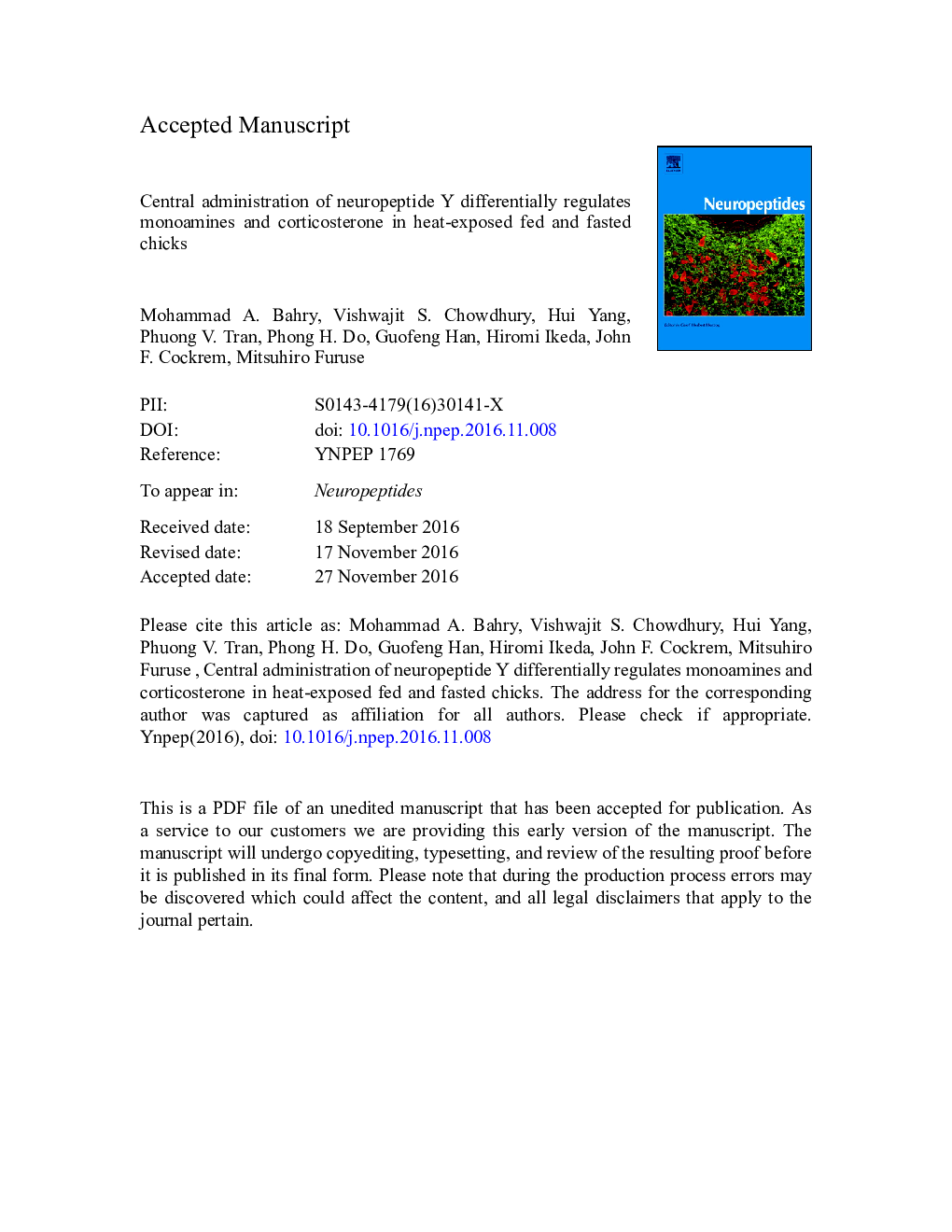| Article ID | Journal | Published Year | Pages | File Type |
|---|---|---|---|---|
| 8633759 | Neuropeptides | 2017 | 36 Pages |
Abstract
Recently, we demonstrated that brain neuropeptide Y (NPY) mRNA expression was increased in heat exposed chicks. However, the functions of brain NPY during heat stress are unknown. This study was conducted to investigate whether centrally administered NPY affects food intake, rectal temperature, monoamines, stress hormones and plasma metabolites in chicks under high ambient temperatures (HT). Five or six-day-old chicks were centrally injected with 0, 188 or 375 pmol of NPY and exposed to either HT (35 ± 1 °C) or a control thermoneutral temperature (CT; 30 ± 1 °C) for 3 h whilst fed or fasted. NPY increased food intake under both CT and HT. NPY reduced rectal temperature 1 and 2 h after central administration under CT, but not under HT. Interestingly, NPY decreased brain serotonin and norepinephrine concentrations in fed chicks, but increased concentrations of brain dopamine and its metabolites in fasted and fed chicks, respectively. Plasma epinephrine was decreased by NPY in fed chicks, but plasma concentrations of norepinephrine and epinephrine were increased significantly by NPY in fasted-heat exposed chicks. Furthermore, NPY significantly reduced plasma corticosterone concentrations in fasted chicks. Plasma glucose and triacylglycerol were increased by NPY in fed chicks, but triacylglycerol declined in fasted NPY-injected chicks. In conclusion, brain NPY may attenuate the reduction of food intake during heat stress and the increased brain NPY might be a potential regulator of the monoamines and corticosterone to modulate stress response in heat-exposed chicks.
Related Topics
Life Sciences
Biochemistry, Genetics and Molecular Biology
Endocrinology
Authors
Mohammad A. Bahry, Vishwajit S. Chowdhury, Hui Yang, Phuong V. Tran, Phong H. Do, Guofeng Han, Hiromi Ikeda, John F. Cockrem, Mitsuhiro Furuse,
